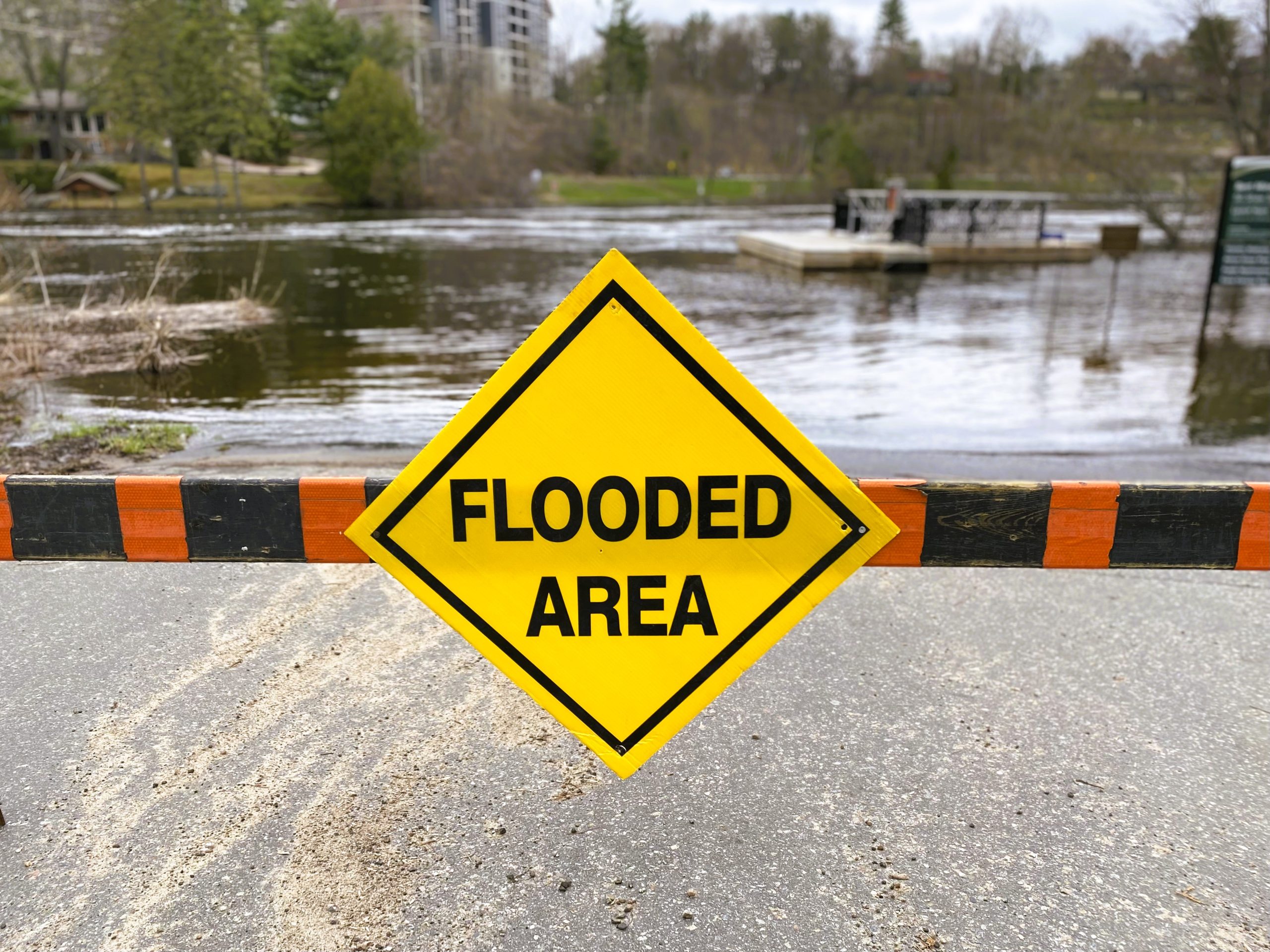What actions must be taken for Muskoka’s community climate plan?
Muskoka has now experienced more frequent and intense rainfall events, and these increase the risks of flooding, erosion and water quality issues.
By Glenn Cunnington.

Climate change is no longer a distant threat; it is an urgent global challenge with profound consequences for our ecosystems, economies, and overall well-being. In Muskoka, an area renowned for its natural beauty, the impacts of climate change are becoming increasingly evident.
In its 2023 Muskoka Watershed Report Card, MWC noted that temperatures in Muskoka have been increasing over time and confirmed the MWC evidence-based projections outlined in its 2016 Planning for Climate Change in Muskoka report. Muskoka has now experienced more frequent and intense rainfall events and these increase the risks of flooding, erosion, and water quality issues.
The District of Muskoka established its climate-specific portfolio in 2018 and, in turn, strengthened its efforts on varied programs and policies to address climate change and advance climate resiliency across the watershed.
In 2020, District Council declared Muskoka’s climate emergency and approved its associated “New Leaf Climate Strategy” which outlines actions for the District to tackle Muskoka’s changing climate. The District completed a Greenhouse Gas (GHG) inventory which identified transportation, heating buildings, and solid waste and wastewater management as the primary sources of emissions and set a baseline for effectively managing these emissions.
Tackling climate change and reducing GHG emissions requires collaboration by everyone, across all sectors of the community, from individuals to the largest organizations, to all levels of government.
Collective actions must engage people to mitigate emissions and adapt to impacts. Mitigation will help to reduce GHG emissions through renewable energy adoption, energy efficiency, and sustainable transportation. Adaptation will occur through enhancement of infrastructure resilience to the changing environment, protection of natural habitats, implementation of effective water management strategies, and integrating climate considerations into new development processes — what MWC refers to as “Integrated Watershed Management.” Community engagement will raise awareness of issues, actions, and solutions, promote sustainable practices, and foster meaningful partnerships. Collectively, these efforts can result in major reductions in emissions and activities which will support a climate-resilient Muskoka.
Many individuals, organizations, schools, businesses, and various governments are making notable efforts to tackle Muskoka’s changing climate. Through local and regional Climate Action Plans, area and regional governments are aligning efforts, pursuing and administering climate-related grants, developing new tools to help reduce impacts of extreme weather events, delivering evidence-based plans to reduce GHG emissions from fleet, municipal buildings, and infrastructure, and providing engaging outreach and educational opportunities across Muskoka and beyond. While these actions are helping to reduce GHG emissions and meet the target of 50 per cent reduction by 2030 and net-zero by 2050, there is more to be done.
Since early 2023, the district facilitated the development of the Muskoka Community Energy and Emissions Reduction Plan (CEERP). The plan was developed for the Muskoka community through input from students, individuals, businesses, industries, institutions, utilities, community groups, and staff and elected officials from local and regional governments. The CEERP was finalized earlier this year and is a call to action for all sectors and people in Muskoka. For example, decreasing reliance on fossil fuels for transportation through the use of electric/low-carbon vehicles, public transit, and active transportation. Energy efficient retrofit programs and integrating renewable energy sources into existing and future developments are also key considerations for addressing emissions from the built environment.
Finally, actions that will reduce waste and increase local knowledge related to everyday actions for reducing emissions will aid in further GHG reductions.
Addressing climate change is not a choice but a responsibility shared by all of Muskoka. Together, we can make a difference by embracing sustainable practices and safeguarding Muskoka’s natural treasures and communities.

This is the latest in our summer series of articles from the Muskoka Watershed Council on “Living in a Changing Watershed” published on MuskokaRegion.com. Each explores a common theme of integration and relationships — how we cannot thrive without understanding how ecological forces, including human actions, shape the world we live in. This week’s contributor is Dr. Glenn Cunnington, Manager of Watershed Programs at the District of Muskoka.
